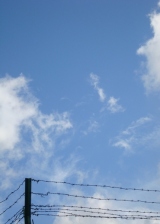 “I was so badly affected that I contemplated suicide. I just couldn’t take it anymore. Everything that held meaning for me – family, work religion – was collapsing, and it seemed like there was nothing left. I went through a painful year of constantly enduring the feeling of extreme loneliness, as if I had been forsaken by everyone around me, including my family members, work colleagues, even God. It was a loneliness so deep that I could not see any way out of it. Nobody came up to offer any help; it seemed to me as if no one was willing or prepared to do so.”
“I was so badly affected that I contemplated suicide. I just couldn’t take it anymore. Everything that held meaning for me – family, work religion – was collapsing, and it seemed like there was nothing left. I went through a painful year of constantly enduring the feeling of extreme loneliness, as if I had been forsaken by everyone around me, including my family members, work colleagues, even God. It was a loneliness so deep that I could not see any way out of it. Nobody came up to offer any help; it seemed to me as if no one was willing or prepared to do so.”
~Thomas is a civil servant in his fifties. He lives with his wife and two children, and identifies as bisexual. His story, and many others, can be read in the ebook.
What is Suicide?
Suicide is a deliberate, self-inflicted act of killing oneself. It happens when the emotional pain becomes too unbearable, and too difficult for one to cope.
Do you feel emotionally distressed? Are you experiencing feelings of hopelessness or despair?
If you’re gay, lesbian, bisexual or transgender, and feeling depressed and suicidal, it can be a very painful, lonely experience.
But it’s also just as important to know that YOU ARE NOT ALONE. There are people out there who care enough to listen, and you can get help.
How can you help?
How would you feel if a loved one or friend told you that they’re feeling suicidal?
Well…. I suppose it would be very common to feel:
Scared… “My best friend is going to die!”
Helpless… “What should I do?”
Angry…. “How dare my best friend die! For what? I must stop this!”
Confused… “Wonder what brought this on?”
If you happen to know someone who is feeling depressed or suicidal, here are some things you can do to help them:
DO:
* Stay calm.
* Be accepting.
* Be patient & gentle.
* Show that you care & be there for the person.
* Listen to their problems and feelings.
* Encourage them to seek help & talk to someone they trust.
* Get help for them & for yourself.
Where can you find help?
Useful information about suicide prevention is available from the following Singapore-based websites:
Samaritans of Singapore (SOS)
Community Health Assessment Team (CHAT)
International resources:
Befrienders Worldwide
Trevor Project
What is World Suicide Prevention Day?
World Suicide Prevention Day on 10 September promotes worldwide commitment and action to prevent suicides. According to the World Health Organisation, on average almost 3000 people commit suicide daily. For every person who dies by suicide, 20 or more may attempt to end their lives. Read more about it here.







 MARRIED & GAY
MARRIED & GAY


